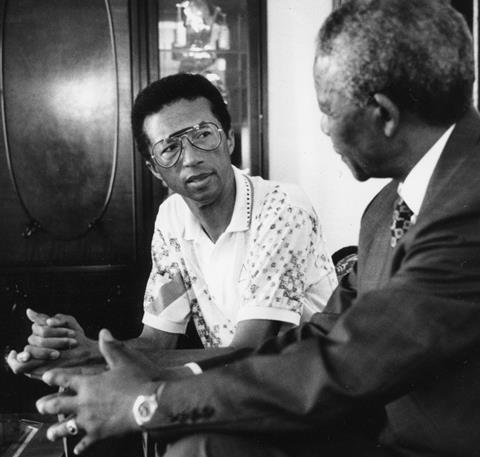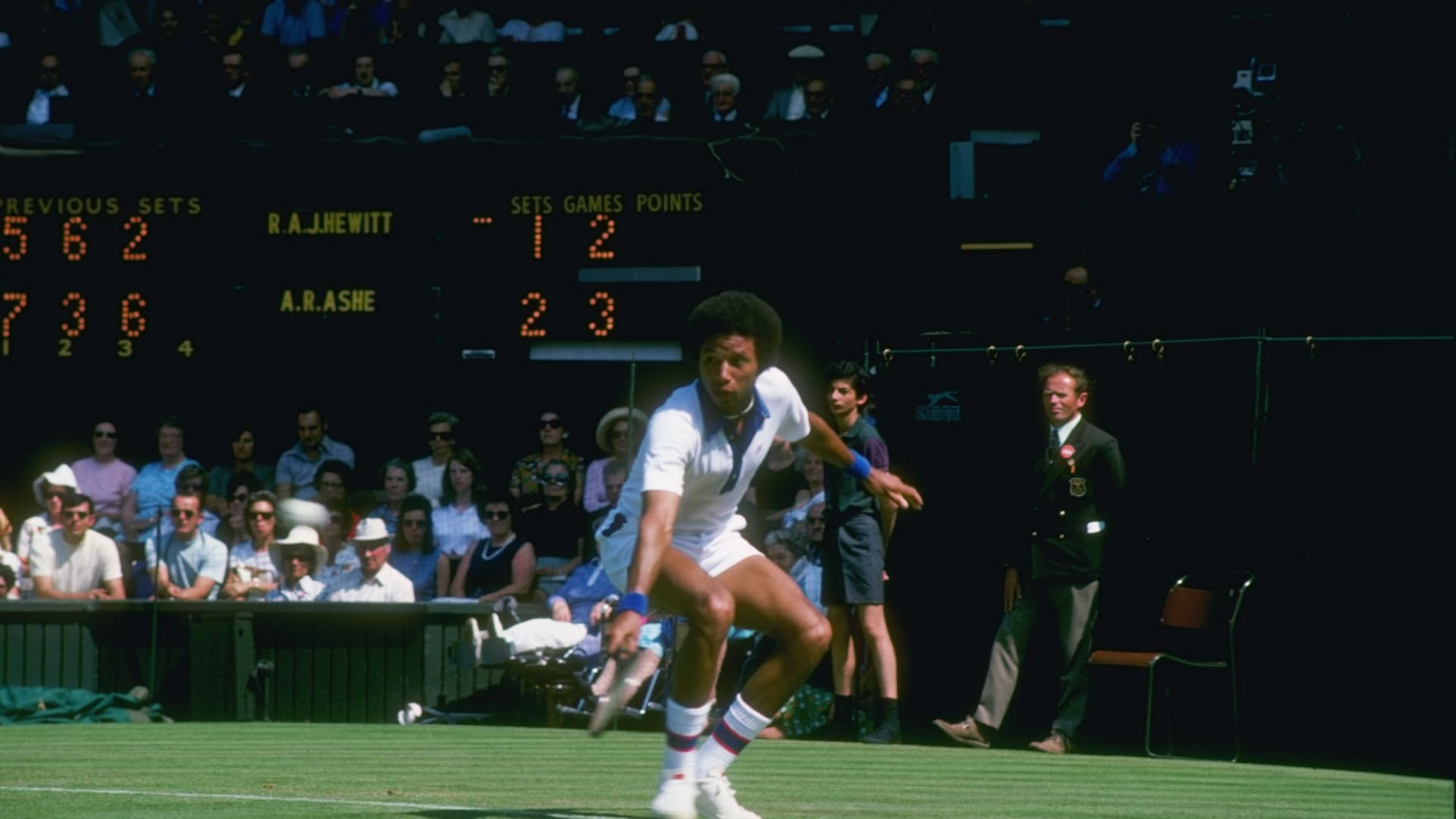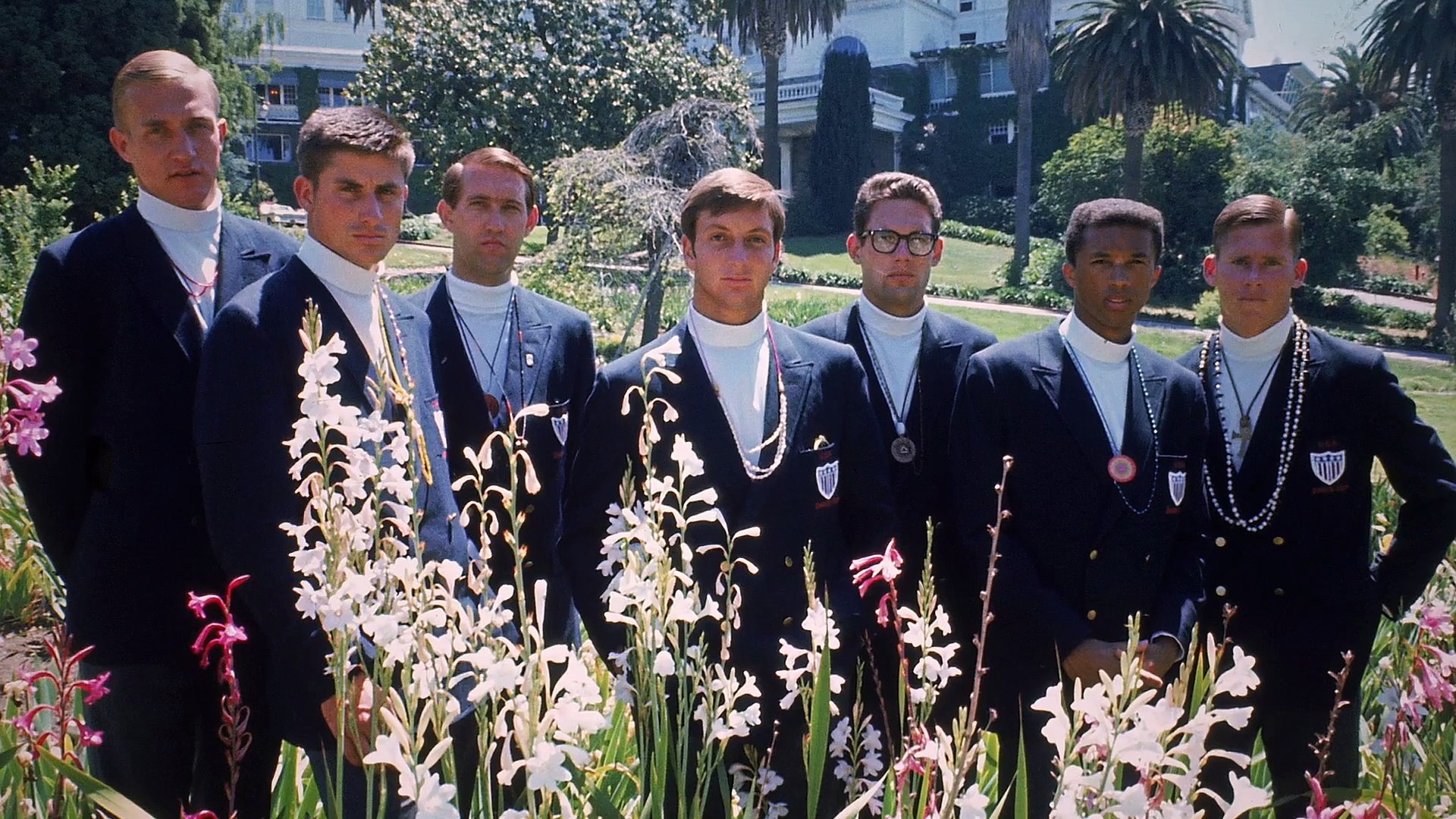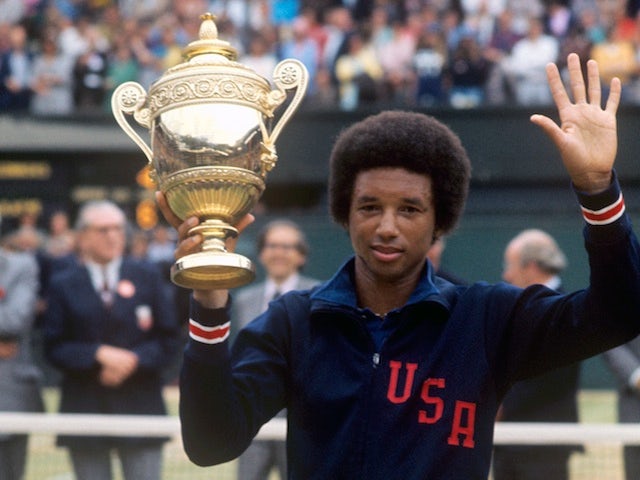



Generations before Colin Kaepernick took a knee, not all that long after Jackie Robinson retired, and shortly after Althea Gibson broke the color barrier in tennis, Arthur Ashe took to the world’s most famous tennis tourneys, brought his game to Apartheid South Africa and had a hand in inventing what it means to be an Activist Athlete.
The new documentary “Citizen Ashe” reminds us not only in his role in shaping the racial debate in America, but of his own journey, from reserved, private and non-confrontational champion to a quiet, compelling and forceful activist for social justice and well-spoken/outspoken critic of injustice.
Filmmakers Rex Miller and Sam Pollard track that journey through Ashe’s career, when he was repeatedly profiled in the media as “one of the greatest we have ever produced,” as CBS reporter Charles Kuralt put it, a lone Black face in the “white country club, white suited white guys” world of tennis.
The fact that grew up in the Richmond, Virginia and later St. Louis of the 1950s and ’60s, and other Black athletes were speaking out and acting out — at the 1968 Olympics, in the NBA — and Ashe wasn’t got him labeled “an Uncle Tom” by the likes of Kareem Abdul Jabbar. It’s a little shocking to remember the Elder Statesman of American Sport, as Jabbar now is, calling his contemporary “Arthur Ass” for not speaking out in the ’60s and early ’70s.
But as his playing career wound down and opportunities presented themselves to take high profile stands, Ashe collected his thoughts, picked his spots and became everything his critics never expected him to be and more.
Jabbar, one of the most widely-quoted m sports figures on the subject of race and racism in America, is conspicuously absent from “Citizen Ashe.” That points to the film’s narrow focus (not a lot of interview subjects), the privacy of Ashe and lingering grudges (or in Jabbar’s case, embarrassment) held by his contemporaries.
Where “Citizen Ashe” excels is in getting at the essence and the origins of the man’s character. Growing up, as he put it, in “Civil War-obsessed Richmond,” the son of a playground caretaker with the city’s public works department, he learned the game on the now-famous public courts of Virginia’s capital.
He was mentored by Althea Gibson’s coach, Robert Walter Johnson, and attended Johnson’s summer tennis camps in Lynchburg, Va. all through his childhood.
He got his game from Johnson and his discipline from his father, who held a public works job in a segregated city that openly celebrated its role as the Capital of the Confederacy.
Once he got good and started playing tournaments, Ashe faced racism as a teen, both in Richmond and elsewhere as the family relocated to St. Louis to improve his prospects. A lifetime of “first Black man” to do this or that in tennis began as he starred at UCLA, won the first ever U.S. Open (as an amateur), and later titles at the Australian Open and Wimbledon, and became not just the first Black man to play on the U.S. Davis Cup team, he became its first Black team captain, riding John McEnroe’s racket to glory in the ’80s.
He was president of the Association of Tennis Professionals, his sport’s union, in the ’70s, maybe the first hint that “Uncle Tom” wasn’t a fair label.
“Citizen Ashe” is more interested in the Ashe’s activism as his tennis career wound down. But we get a great taste of his game and assessment of his skills from the likes of Donald Dell (his agent), Billie Jean King and others. There’s plenty of interview footage of Ashe explaining the way he rethought his serve and volley style to beat hated rival Jimmy Connors at Wimbledon in 1975, his last burst of tennis glory, an “old man” beating the “punk” on his sport’s grandest stage.
Ashe said of his reluctance to speak out and act out, “That’s not my way.” He was kept clear of the Vietnam War and any compulsion to speak out on that by not being drafted, something his brother Johnnie (seen in the film) attributes to Johnnie’s service, and signing up for a second tour to keep his sibling from being drafted out of the same family.
Ashe’s entre to activism came through South Africa, openly supporting the widening boycotts that pressured the Apartheid regime, agreeing to go there but only on his integrated terms.
He only spoke out about AIDS years after he contracted the disease, and only when the intensely private man was about to be “outed” as having it (he apparently contracted it from a blood transfusion) by a news report. It became another cause, one he worked on until he died, in 1993.
Although “Citizen Ashe” covers the highlights of a life and career that has drifted from the public consciousness in the nearly 30 years since his death, it doesn’t get all that close to its subject. We meet and hear from his wife and brother, a Civil Rights activist friend here, and childhood friend there.
There’s a lot more in-depth information on his Wikipedia page, frankly. Most CNN Films docs have a surface-skimming quality to them.
But the timeliness of the film and the need to remember him seems obvious in “Citizen Ashe.” His statue now stands on Richmond’s famous “Monument Avenue,” which formerly honored a lot of the Old Dominion’s “heroes” of the Confederacy.
The Colin Kaepernicks don’t emerge in a vacuum. They’re a part of a continuum, thanks to the issues they speak out about (or in Kaepernick’s case, release a “statement” or Tweet about) never going completely away thanks to the glacial pace of “progress” in America.
Rating: unrated
Cast: Arthur Ashe, Donald Dell, Jeanne Moutoussamy-Ashe, Johnnie Ashe, Harry Edwards, Billie Jean King, and John McEnroe
Credits: Directed by Rex Miller and Sam Pollard. A Magnolia/CNN Films release.
Running time: 1:34

